Videos by American Songwriter
Deer Tick’s current lineup, which boasts additional songwriters in guitarist Ian O’Neil and drummer Dennis Ryan, has been the only stable group of players in a band that once felt like whoever happened to be backing up frontman John McCauley. As such, the band has come together for its most cohesive record, with a lead single (“Dream’s In The Ditch”) from O’Neil. “It’s not new to hate what they make of you,” he sings on the infectious single, a warning call for a band that has had a hard time shaking their party-heavy image. Producer Steve Berlin of Los Lobos does a great deal for the group here, polishing up their song craft and adding horn section to great effect on tracks like “The Rock.” McCauley mixes tender balladry (“Just Friends,” “In Our Time”) with the occasional Nirvana-indebted hard rock the band has come to be known for (“Pot of Gold”). But for its fifth album, Deer Tick its bar-band rawness and released one of the most consistent power-pop records of the year.
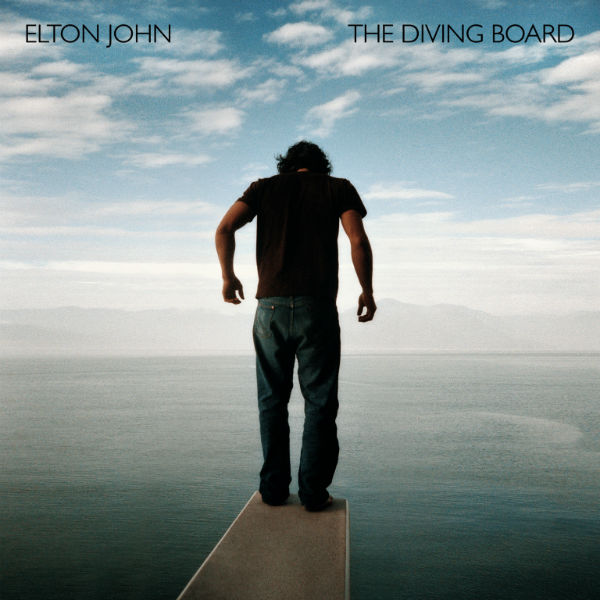
39. Elton John: The Diving Board
“We all dream of leaving, but wind up in the end/Spending all our time trying to get back home again,” Elton John sings on “Home Again,” the lead single and centerpiece ballad on The Diving Board. Of course, Elton’s longtime collaborator/lyricist Bernie Taupin is responsible for those words, but it’s impossible to hear them and not think they pertain directly to the wayward path John trod in his career away from his early ’70s peak and what he did best. The good news is that the new album corrects a lot of those mistakes by putting Elton and his piano front and center, playing the kind of bluesy rockers and gorgeous ballads that were always his strong suit before he caught up chasing the ever-elusive sound of the moment. His playing here is uniformly evocative and inspirational, and Taupin rises to the occasion with lyrics that are more tangible and earthy than usual. You could slot The Diving Board right into the John timeline after Tumbleweed Connection and it would make perfect sense, but it’s better to think of it as a promising new beginning for this rock legend.
To write and record some of the songs for the album, Winston Yellen rented a house outside of Nashville that was once owned by Johnny Cash and June Carter. The country legends’ ghosts haunt this record only sporadically, but stretches of tastefully-played slide guitar leave Nashville’s mark throughout its tracks. It sways through the album’s second single, “Ramona,” a rollicking tune that introduces the full band while the lyrics follow the type of displaced woman Yellen hopes to write for and about. “Come on, Ramona,” he sings over a jaunty acoustic melody. “Make it your mantra. / Fuck what they taught ya.” Yellen’s ethereal voice could certainly speak to spirits on the other side. At some of its best moments, like the first bars of “Wanted You In August,” it leaves a lump in the throat and an unsettling premonition in the gut. With the range that he already has at 23, it’s exciting to consider how far he may take it in future records.
On Tooth & Nail, his first studio album in years, Billy Bragg has given political diatribe and sarcasm a back seat to more tempered observation and introspection. But his less-renowned softer side has always been as compelling as his social conscience; that he’s able to point fingers at injustice and sing a sweet love song with equal skill is simply a testament to his enduring artistic brilliance. He calls this album the follow-up he never made to Mermaid Avenue, and there’s no question its tone evokes that charming collaboration. “Handy Man Blues” carries a sentiment Woody Guthrie himself might have written: “I’m not any good at pottery, Bragg sings, so let’s just lose a ‘t’ and shift back the ‘e’/and I’ll find a way to make my poetry/build a roof over our heads.” He goes one better in his cover of Guthrie’s “I Ain’t Got No Home.” With instrumental embellishments by Gregg Leisz, Bragg’s soulful delivery sets a new benchmark for the classic. If that weren’t enough to earn the “Sherpa of Heartbreak” tag a fan gave him, “Swallow My Pride” and “Goodbye, Goodbye” would clinch it. They’re beautifully bittersweet odes, and further proof that the U.K. should anoint this son with an honor more definitive than sherpa. How about poet laureate? Or “Sir”?

36. Frank Turner: Tape Deck Heart
Not many people can make physical and psychic pain sound as jaunty as Frank Turner, who spins his woes into energetic melodies so catchy, you have to marvel at his resilience. He may be dying inside, as so many of his lyrics suggest, but he’s lifting our spirits as he does, blowing them upward with Pogues-like bluster, high harmonies and sweet mandolin or Ramones-speed drumming and strumming — or all of the above, along with cabaret piano and anything else he can throw in. But then he’ll stop us short with a tempo change and a line like “You stood apart in my calloused heart, and you taught me and here’s what I learned: That love is about the changes you make and not just three small words” (“The Way I Tend To Be”). Turner makes us root for him as we simultaneously ponder how he can squeeze so many wonderful words out without taking a breath, and how he can make us smile while railing against evils including Hollywood and Motley Crüe (in “Good and Gone”), or nearly cry with an end-of-love confession (“Anymore”). And how, despite all the turmoil, he insists on hearing us repeat these four simple words: “I want to dance.”
In another year or two, only the out-of-touch and over-the-hill will make a big deal out of the sort of stylistic shift that Tristen has made between the live instrumentation of her debut album and the coolly expansive electronic palette of CAVES. All the kids are doing it, you know. But not all the kids have her fine-tuned songwriting sensibilities and nimble imagination. You don’t get some stiff genre exercise when this Nashville-based singer-songwriter begins leaning on ‘80s synth as opposed to guitar. What you hear on this 11-song set is her sensitive response to that new sonic frame, her hooks taking on a refracted, crystalline quality and her voice freed from its tethers to the earth. It’s easy to get swept up.
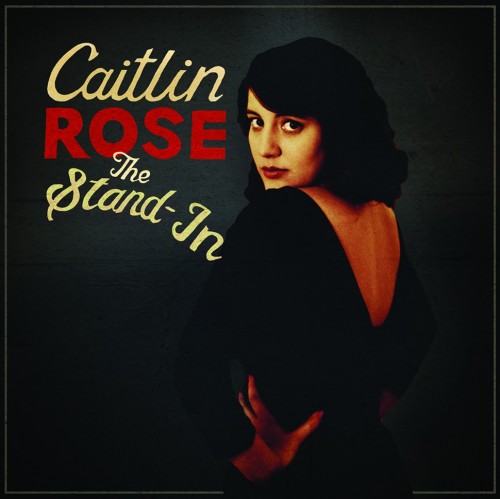
34. Caitlin Rose: The Stand-In
From the opening punk power chords on “No One To Call” all the way to the jazzy ragtime on album closer “Old Numbers,” The Stand-In is crammed with Caitlin Roses’ infectious 21st century take on 20th century American music. Rose’s deep sense of melody imbues The Stand-In with hook after hook, and the record lies alongside albums like Summerteeth and Radio City, multi-platinum hits in an alternate pop universe. On a record with no throwaway tracks and a half-dozen possible singles, it’s easy to get lost in the power-pop perfection of “Silver Sings” and “Only A Clown” (co-written with Gary Louris of the Jayhawks) or the finely-crafted country tracks like “Pink Champagne” and “Waitin’”. The latter is home to one of the record’s many highlights, when the twenty-six year old singer belts out her second full-length album’s thesis statement in a moment of celebratory release: “But the love that’s gone, baby, hurts the best,” she sings, and she spends the rest of her best record yet showing us exactly how good the pain feels.

33. Mark Knopfler: Privateering
Better late than never. That’s what Mark Knopfler’s American followers must have been thinking when Privateering, which had been released in 2012 in Europe, finally escaped its limbo and made its way to these shores in September. The good news is that it’s a double-album, giving fans plenty of opportunities to savor Knopfler’s brilliant guitar work and excellent songwriting. Although there are still some lovely examples of the traditional folk that dominated Knopfler’s previous solo album, 2009’s Get Lucky, this is by and large a bluesy affair. “Privateering” and “Bluebird” are immediately affecting metaphors, while other “Don’t Forget Your Hat” and “Today Is Okay” take more light-hearted approach to the blues. The relationship ruminations “Go, Love” and “Seattle” are restrained yet subtly reveal deep reserves of emotion, while Dire Straits fans will recognize “Corned Beef City” as being not too far removed from some of that band’s grinding rockers. Knopfler was always too good a songwriter to be just a guitar hero, and fine albums like Privateering continue to showcase that effortless versatility.
For 18 years, Son Volt has been one of the most important bands in alt-country, picking up mostly where frontman Jay Farrar’s previous band, Uncle Tupelo, left off. Yet where his onetime bandmate Jeff Tweedy mostly pushed further into rock than country with Wilco, on Honky Tonk, Farrar & Co. took a sharp U-turn in the other direction and released an honest-to-goodness country album, minus the “alt.” It’s not country by today’s mainstream standards, though — its acoustic strums, brushed drums and heavy use of lap steel harken back to the Golden Age of Bakersfield country, with a trace of ‘70s Laurel Canyon. It’s an organic and earnest sound, mellower but still true to the spirit of Son Volt’s Gram Parson-inspired country rock. And it works splendidly, showing that Farrar’s deep, salt-of-the-earth vocals sound just as good without the fuzzbox behind him.
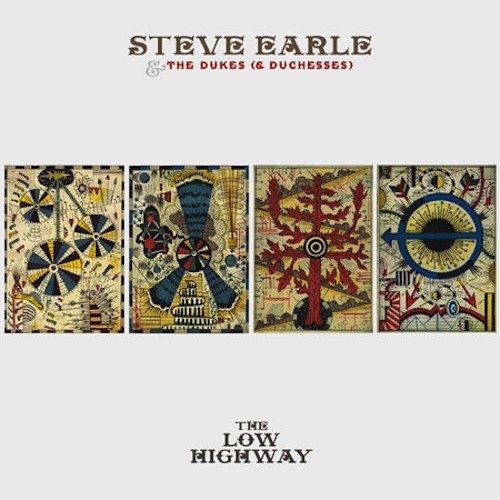
31. Steve Earle & The Dukes And Duchesses: The Low Highway
While he’s kept busy with his acting and writing careers, The Low Highway leaves no doubt that Earle is still focused on his music. His songs of the past decade have had an unrelenting political bent that sometimes overwhelmed the craft behind it, but he’s found a way to deliver a much more balanced album this time around, probably his best since 2000’s excellent Transcendental Blues. Earle by no means has abandoned his social concerns; in actuality, the first three songs on The Low Highway combine to create quite a damning portrait of this country. He does this not by taking pot shots at easy targets; instead, he builds his case through character sketches and telling observations. “Calico County” is a riff-heavy rocker sung by a character drawn to a life of drugs and crime simply because all exit routes from the titular hellhole have long been closed down. The narrator of “Burnin’ It Down” is so frustrated by his situation that he lashes out at the faceless enemy: the “it” he’s considering incinerating is the local Wal-Mart, even if Earle’s dejected vocal makes it clear that this guy is probably too defeated to follow through on his threat. Earle has assembled a crack back-up band, and they come in handy whenever he makes a stylistic detour, from the zydeco-flavored “That All You Got?” to the gentle swing of “After Mardi Gras.” An even more important ingredient to the album’s success is the his willingness to change up his subject matter up and look inward almost as often as he does outward.


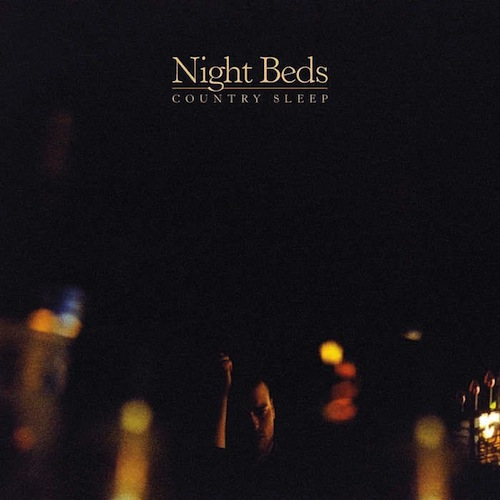
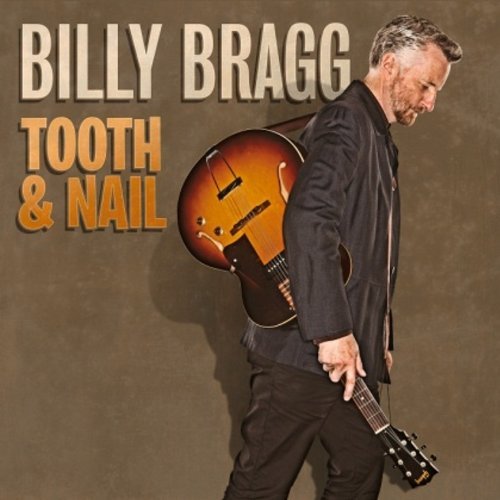

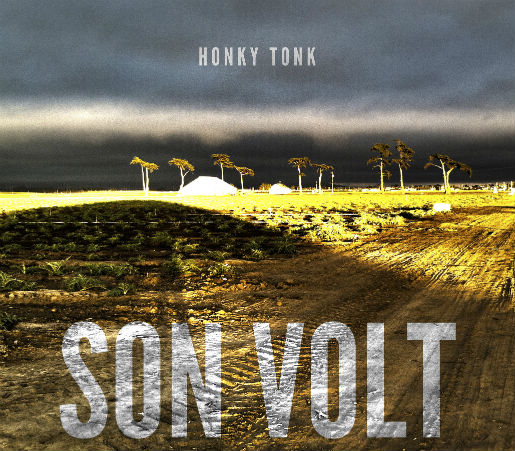












Leave a Reply
Only members can comment. Become a member. Already a member? Log in.